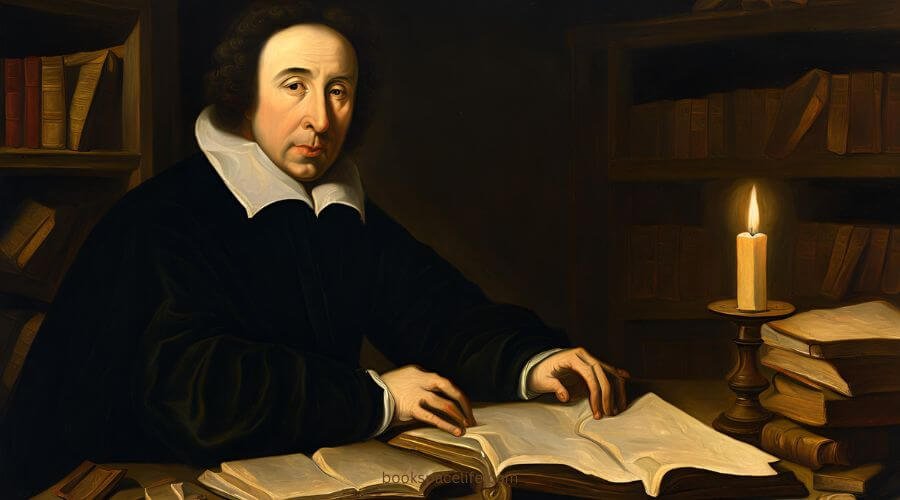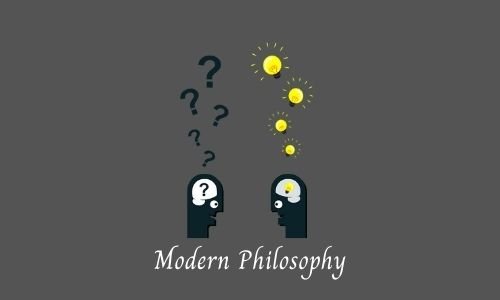Philo of Alexandria
George Berkeley : Idealism, Empiricism, and the Vision of Reality
George Berkeley (1685 – 1753 CE) was an Irish philosopher who made lasting contributions to the field of philosophy, particularly through his development of idealism, the view that reality is fundamentally mental in nature.
A key figure in the early development of modern philosophy, Berkeley questioned the nature of reality and the relationship between the mind and the world.
His ideas, while controversial in their time, have had a profound influence on the subsequent trajectory of philosophy, especially in the areas of metaphysics, epistemology, and perception.
Table of Contents
(1) Early Life and Education
George Berkeley was born on March 12, 1685, in Dysart, County Kilkenny, Ireland, into a relatively prosperous Anglo-Irish family.
His father, William Berkeley, was a landowner who provided a stable home for young George, who was the eldest of the couple’s children.
Despite his privileged background, Berkeley’s early years were marked by the loss of his father when George was just a child, which profoundly influenced his intellectual development.
Berkeley began his formal education at Kilkenny College and later attended Trinity College in Dublin at the age of fifteen, where he studied philosophy and theology.
It was at Trinity that he was exposed to the works of important European philosophers, including René Descartes, John Locke, and the British empiricists.
Locke’s Essay Concerning Human Understanding would particularly influence Berkeley, shaping his views on the nature of perception and knowledge.
After graduating in 1707, Berkeley quickly gained a reputation as a thinker of exceptional promise.
He was appointed a fellow at Trinity College in 1709, and it was during this period that he began to develop his own ideas, which would later challenge the fundamental assumptions of contemporary philosophy.
(2) Travels and Clerical Life
Berkeley’s travels played a significant role in the development of his ideas. In 1713, at the age of 28, he published An Essay Towards a New Theory of Vision, which introduced many of the concepts that would later become central to his philosophy.
However, it was his later travels that brought him closer to developing his comprehensive theory of idealism.
In 1728, Berkeley left Ireland for England, where he continued his studies and wrote prolifically.
During this period, he was appointed to various academic positions and became well-known among intellectual circles.
Yet, his most ambitious endeavor came in 1728, when he sailed to America with the hope of founding a college in Bermuda, aimed at educating Native Americans.
Although the project ultimately failed, Berkeley’s time in the New World did contribute to his philosophical development, especially in terms of his understanding of the relationship between mind and nature.
After returning to England in 1731, Berkeley continued to write, lecture, and engage with contemporary philosophical debates.
He was eventually made the Bishop of Cloyne in 1734, a position that allowed him to support his philosophical endeavors while also serving the Church.
(3) Berkeley’s Philosophy: Idealism and Empiricism
Berkeley is most famous for his development of idealism, a school of thought that asserts that physical objects do not exist independently of the mind.
For Berkeley, “to be is to be perceived,” meaning that the existence of an object is contingent on it being perceived by a mind.
This idea is best captured in his most influential work, A Treatise Concerning the Principles of Human Knowledge (1710), where he argues that the material world is not composed of independent physical substances, but rather exists only as perceptions within the minds of observers.
Berkeley’s philosophy is often summarized by his dictum: esse est percipi (to be is to be perceived).
This radical stance questions the very nature of reality, suggesting that all physical objects are simply collections of sensory experiences that exist only when they are perceived by conscious beings.
In other words, the world we experience is a world of ideas, not physical matter.
Berkeley’s idealism directly challenged the Cartesian and Lockean assumptions of substance dualism—the idea that the mind and the body are separate—and materialism—the belief that material substances exist independently of the mind.
According to Berkeley, objects like tables, trees, and stars do not have an independent existence apart from our perceptions. Instead, they exist as ideas in the minds of perceiving subjects.
And because God is always present and perceiving, the world exists continuously even when humans are not observing it.
One of the key components of Berkeley’s theory is his concept of “secondary qualities,” which refers to characteristics such as color, taste, and sound that are not inherent in objects themselves but exist only as perceptions in the mind.
He contrasts these with “primary qualities” like size, shape, and motion, which he believes also exist only as ideas in the mind, but are somewhat more objectively grounded.
The Critique of Materialism and the Role of God
Berkeley’s idealism was deeply rooted in his theological views. While many philosophers of his time sought to explain the world in purely material terms, Berkeley argued that materialism could not adequately account for the existence and nature of the world.
If the world were entirely material, how could we explain perception? How could material substances give rise to the ideas we experience in our minds?
For Berkeley, the solution lay in divine idealism. He believed that God, as the ultimate perceiver, was the guarantor of the world’s continued existence.
God’s perception of the world ensured its stability and persistence, even when human beings were not perceiving it.
Berkeley argued that the idea of a material substance existing independently of the mind was incoherent; rather, the world is an ongoing creation of ideas, upheld by God’s perception.
This theological element is what distinguishes Berkeley from other idealists.
While other philosophers, such as René Descartes, saw God’s role in the world as more distant, Berkeley envisioned a world in which God was intimately involved in sustaining the reality of the universe through perpetual perception.
This perspective not only elevated the mind to a central place in Berkeley’s philosophy but also allowed him to maintain a deeply religious view of the world, aligning his metaphysics with his Christian faith.
(4) Influence and Impact
Berkeley’s philosophical ideas were met with significant opposition, especially from those who adhered to the materialist and mechanistic worldview that was gaining ground in the 17th and 18th centuries.
His critique of materialism and his idealism were seen as radical by many contemporaries, and his ideas were challenged by leading philosophers such as David Hume and Immanuel Kant.
Despite the initial resistance to his ideas, Berkeley’s philosophy had a lasting impact on the development of modern thought.
His critique of materialism influenced later philosophers, particularly in the realms of epistemology and metaphysics.
Berkeley’s insistence that all knowledge is based on perception and that the external world exists only as a construct of the mind prefigured the developments in subjective idealism and phenomenology that would be explored by later thinkers such as Immanuel Kant, Johann Gottlieb Fichte, and Edmund Husserl.
Moreover, Berkeley’s ideas on perception, reality, and the role of the mind in constituting the world had a profound effect on the German Idealist movement, particularly on figures like Hegel, who was influenced by Berkeley’s emphasis on the interdependence of perception and reality.
His work also foreshadowed aspects of existentialist thought, especially in the way that it questions the objective existence of the world and focuses on the individual’s experience of reality.
Berkeley’s influence also extended into the realm of theology. His insistence on the intimate connection between perception, mind, and God resonated with religious thinkers who saw his philosophy as a defense of divine providence.
His work was interpreted as a demonstration that the world is not just a random collection of material objects, but rather a divine order sustained by God’s continuous involvement.
(5) Legacy
Though Berkeley’s ideas were not universally accepted during his lifetime, his intellectual legacy is undeniable.
His contributions to the philosophy of mind, perception, and metaphysics have continued to be the subject of extensive study and debate.
Berkeley’s idealism remains a provocative challenge to the assumptions of materialism and the view of reality as existing independently of human perception.
In the 20th and 21st centuries, Berkeley’s work gained renewed interest in the fields of philosophy, psychology, and cognitive science.
His emphasis on the importance of perception as a way of understanding the world laid the groundwork for modern discussions about the nature of consciousness, the mind-body problem, and the relationship between reality and perception.
(6) Conclusion: Berkeley’s Enduring Contribution
George Berkeley’s philosophy was groundbreaking for its time, and his work remains a crucial part of the philosophical canon.
His radical idealism challenged contemporary thought and remains an important position in metaphysics, especially regarding the nature of existence and the role of perception in constructing reality.
By asserting that to be is to be perceived, Berkeley opened up new pathways for understanding the relationship between mind and world, human experience, and divine intervention.
While often overshadowed by other philosophers of the period, Berkeley’s work continues to resonate today, especially in the areas of epistemology, phenomenology, and the philosophy of mind.
His vision of a world dependent on divine perception, and his critique of materialism, ensures that Berkeley’s philosophical legacy endures in the ongoing search for truth about reality, existence, and the mind.








